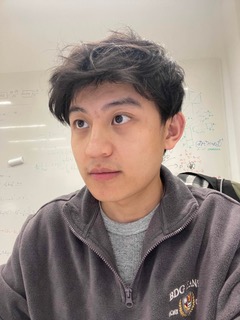| Presented by the Computational NeuroEngineering Laboratory |
|---|
“Modeling and Learning Simplicial Signals—an Edge Case”
Wednesday, March 20 at 3:00pm
MALA 3003
Abstract
We investigate the processing and learning of edge flows in networks, emphasizing the role of discrete Hodge decomposition. By modeling networks as simplicial 2-complexes, we may characterize edge flows using divergence and curl, revealing insights into their smoothness. The Hodge theorem facilitates a decomposition into gradient, curl, and harmonic components, offering a unique perspective on edge flows. Moreover, the Hodge Laplacian acts as a shift operator, allowing a Fourier transform of edge flows. The nontrivial eigenpairs of its down and up parts span gradient and curl subspaces, providing frequency information.
We then introduce the edge convolutional filter, built on Hodge Laplacians, to regulate edge flows at discrete frequencies, demonstrating expressiveness in approximating various response functions. For learning from edge flows, we consider a Hodge-invariant linear transformation of multiple convolutional filters, followed by a nonlinearity akin to graph convolutional networks. This facilitates independent learning in Hodge subspaces.
We also propose Gaussian processes (GPs) based statistical modeling of edge flows for uncertainty quantification, imposing principled structure priors on edge functions through the Matérn edge GP family. Lastly, we showcase some potentials of the proposed approaches in real-world applications including foreign currency exchange, network analysis, ocean current analysis, simplex prediction and water supply networks.
Biography
Maosheng Yang is a PhD student, advised by Elvin Isufi and Geert Leus, in the department of Intelligent Systems of TU Delft, the Netherlands. His research interest lies in: signal processing and machine learning on topological domains (graphs, simplicial complexes); discrete differential and spectral geometry; and machine learning for real-world problems. Before his PhD, he obtained the master’s degree in electrical engineering (cum laude) in Signal Processing Systems at TU Delft. He received his bachelor’s degree in communication engineering from Beijing Jiaotong University in China.

